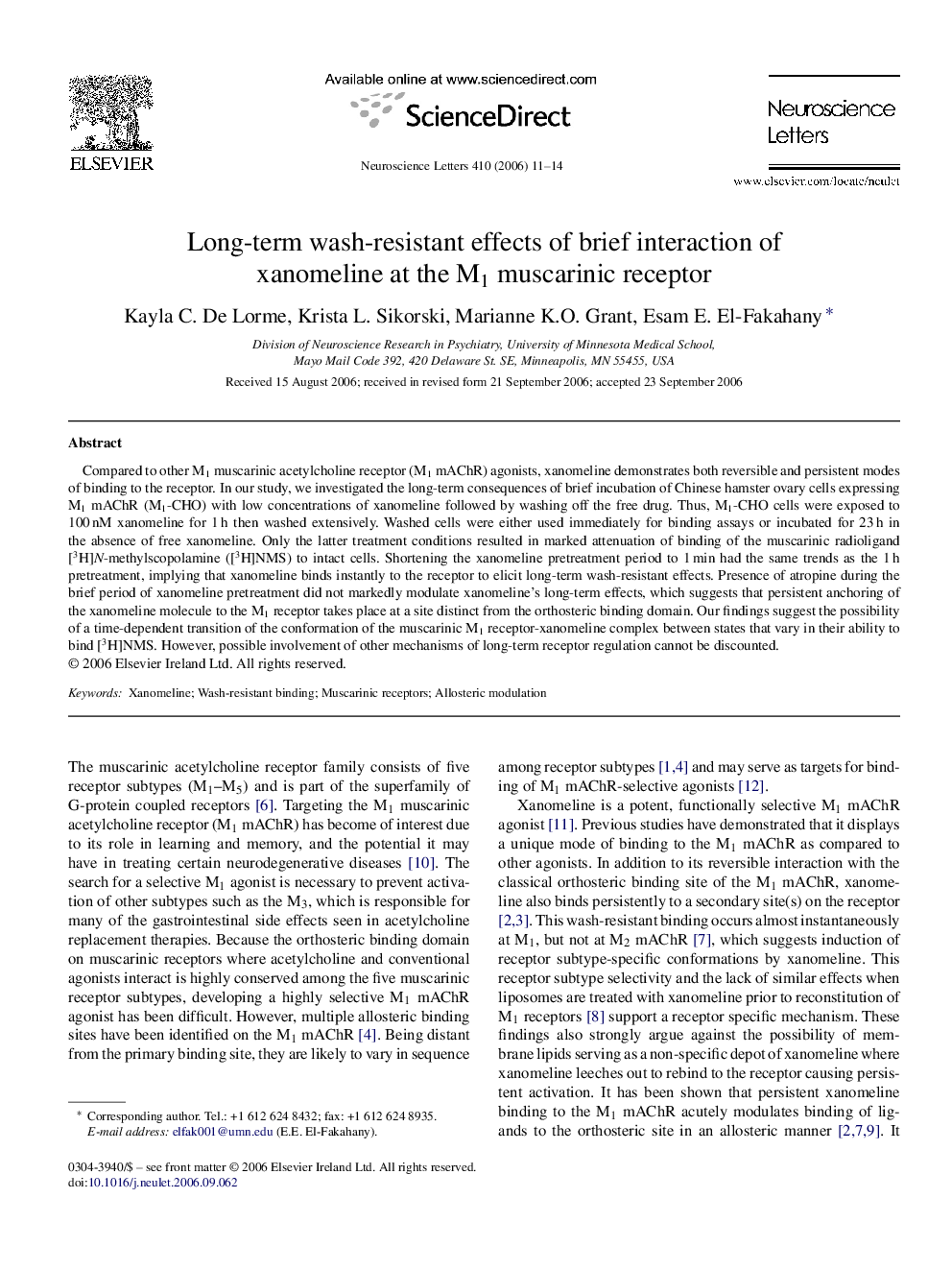| Article ID | Journal | Published Year | Pages | File Type |
|---|---|---|---|---|
| 4350323 | Neuroscience Letters | 2006 | 4 Pages |
Compared to other M1 muscarinic acetylcholine receptor (M1 mAChR) agonists, xanomeline demonstrates both reversible and persistent modes of binding to the receptor. In our study, we investigated the long-term consequences of brief incubation of Chinese hamster ovary cells expressing M1 mAChR (M1-CHO) with low concentrations of xanomeline followed by washing off the free drug. Thus, M1-CHO cells were exposed to 100 nM xanomeline for 1 h then washed extensively. Washed cells were either used immediately for binding assays or incubated for 23 h in the absence of free xanomeline. Only the latter treatment conditions resulted in marked attenuation of binding of the muscarinic radioligand [3H]N-methylscopolamine ([3H]NMS) to intact cells. Shortening the xanomeline pretreatment period to 1 min had the same trends as the 1 h pretreatment, implying that xanomeline binds instantly to the receptor to elicit long-term wash-resistant effects. Presence of atropine during the brief period of xanomeline pretreatment did not markedly modulate xanomeline's long-term effects, which suggests that persistent anchoring of the xanomeline molecule to the M1 receptor takes place at a site distinct from the orthosteric binding domain. Our findings suggest the possibility of a time-dependent transition of the conformation of the muscarinic M1 receptor-xanomeline complex between states that vary in their ability to bind [3H]NMS. However, possible involvement of other mechanisms of long-term receptor regulation cannot be discounted.
